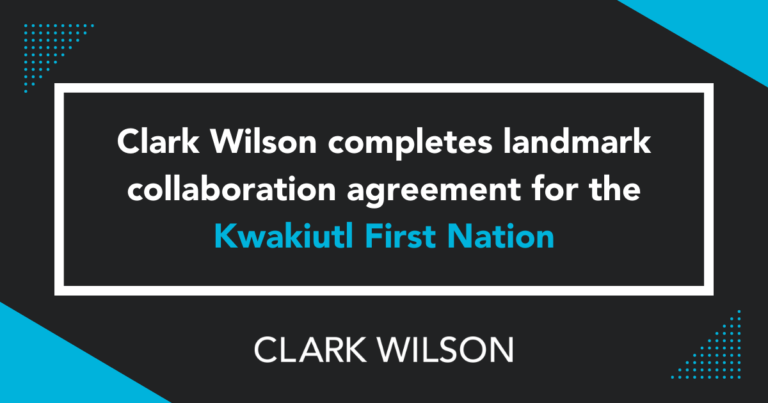In part, in response to the Truth and Reconciliation Commission’s Calls to Action (“Calls to Action”), the British Columbia government passed the Declaration on the Rights of Indigenous Peoples Act (“DRIPA”). DRIPA will see the implementation of United Nations Declaration on the Rights of Indigenous Peoples (“UNDRIP”) in British Columbia law – which is a key component of several of the Calls to Action.
The Calls to Action also contain important requests of the business community. In particular, Call to Action 92 requests that businesses use UNDRIP as a framework for creating reconciliation initiatives. One method of doing so is to create a Reconciliation Action Plan.
What is a Reconciliation Action Plan? It is a document that sets out an organization’s tangible commitments to advancing the reconciliation process.
Key aspects of any Reconciliation Action Plan are:
- To implement recommended practices from reliable sources such as UNDRIP or the Calls to Action that may include:
- Fostering understanding of the harmful impacts to Indigenous peoples by historic and current laws and policies;
- Engaging with Indigenous communities and organizations to understand their unique needs and to collaborate in support of their goals;
- Undertaking intercultural competence training for personnel by competent facilitators;
- Recruiting and supporting Indigenous staff;
- Creating inclusive spaces for Indigenous staff and clients;
- Implementing pprocurement practices that encourage greater recruitment of Indigenous businesses;
- To set out realistic and meaningful actions that are tailored to the individual business;
- Be drafted in a manner that is clear and understandable; and
- Have built in mechanisms to ensure transparency and accountability.
Many businesses already have a Reconciliation Action Plan in place already. For those businesses, it is equally important to review the existing plan to ensure that it meets the criteria above.
One common component of Reconciliation Action Plans is the inclusion of cultural competency training with respect to the underlying issues that are being addressed by UNDRIP, the Calls to Action and other sources. This training is an extremely valuable component for ensuring widespread understanding of the issues and buy-in to need for and purpose of the Reconciliation Action Plan. This type of training requires skills-based training in intercultural competency, conflict resolution, human rights and anti-racism and should always be performed by a qualified and reputable individual.
Reconciliation Action Plans are a critical tool for businesses to ensure that they are operating in a manner that is socially conscious and responsible. Reconciliation Action Plans that incorporate the principles listed here will be sure to assist in the broader reconciliation process and to honour the hard work of creating UNDRIP, the Calls to Action, DRIPA, and many other important documents.
For any questions with respect to the drafting, revising, or implementing a Reconciliation Action Plan please contact Clark Wilson’s Indigenous Law Group.


